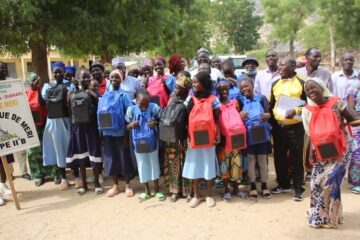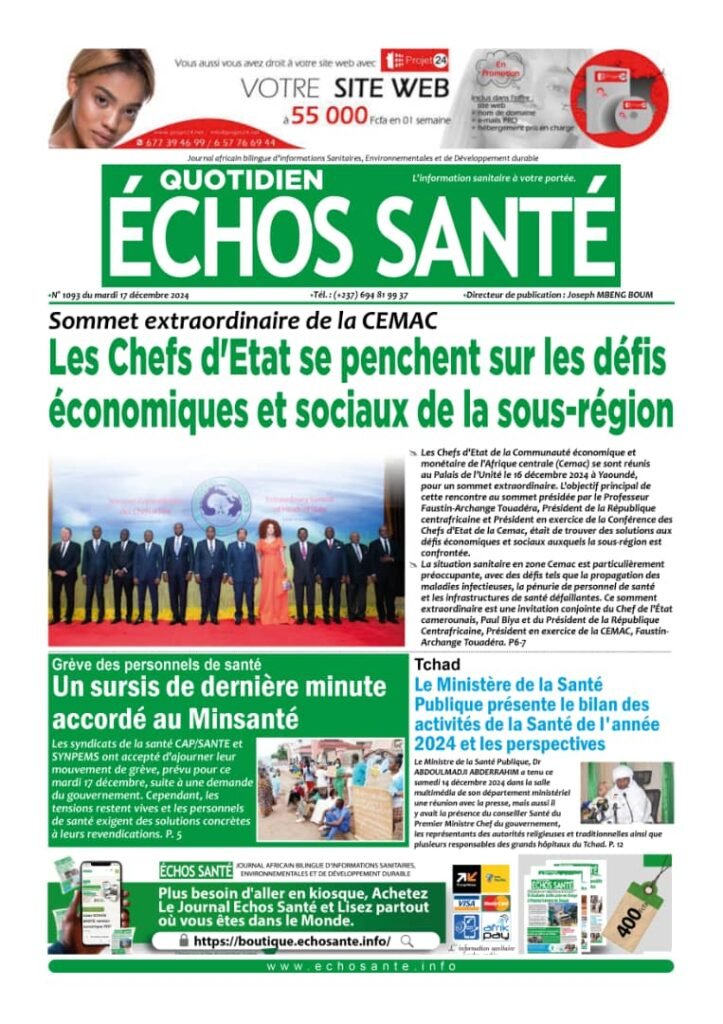
Two men suffering from cholera rest while receiving treatment at an emergency cholera clinic run by Samaritan's Purse outside of Cabaret, Haiti. Despite the work of aid organization, over 89,000 have been infected so far.
According to information from the international medical aid organization, Doctors Without Borders/Médecins Sans Frontières (MSF), not less than 189 cholera cases have been reported in Ekondo Titi and Bakassi, Ndian Division of the Southwest region, since October 27, 2021.
With difficult access to health care and dangerously unsecured health facilities, coupled with an ongoing sociopolitical crisis that has been rocking the region for over five years now, there are fears that the cholera epidemic could linger on longer than expected. “The Ekondo Titi Health District has reported over 160 cases of cholera, with 62 patients hospitalized at the Cholera Treatment Unit, 15 patients treated at the Oral Rehydration points, and 5 deaths recorded. The Bakassi Health district has also reported 29 suspected cases with three deaths from October 27 to November 29. The condition is particularly worrying because it means that cholera has spread in the community,” says Donatien Tshishimbi, Doctors Without Borders Medical Coordinator.
As the Ekondo Titi and Bakassi Health Districts continue to step up efforts to do away with the increasing cholera infections, Doctors Without Borders/Médecins Sans Frontières (MSF) has dispatched medical teams and medicines to help limit the spread of the epidemic.
Doctors Without Borders says medical teams have investigated the cholera epidemic, assessed, and reinforced case management with a referral system for mild, moderate, and severe cases, and conducted networking and advocacy with community leaders and local authorities.
To prevent this latest epidemic from getting out of control, Doctors Without Borders is now providing support to the Ekondo Titi and Bakassi Health Districts with case management, referrals, health promotion, and surveillance.
Medical experts say Cholera is caused by a water-borne bacterial infection and is transmitted through contaminated food or water, or through contact with fecal matter or vomit from infected people. “With Cholera, a patient can lose up to 25 liters of fluid per day. Cholera can cause severe diarrhea and vomiting, and rapidly prove fatal, within hours, if not treated. But cholera is very simple to treat – most patients respond well to oral rehydration salts, which are easy to administer,” MSF said in a dispatch.
In response, Doctors Without Borders says they will use the Decentralized Model of Care to spread treatment to the health district by having community leaders choose members of the community who can manage the Oral Rehydration Salts (ORS) points and refer critically ill patients to health facilities.
Access to health care centers poses a huge problem in these areas, as most health centers are only reachable by boat. As such, Doctors Without Borders is putting together two cholera treatment centers, one in Bamusso and another in Barack. “Treatment will be free, and meals and transportation will be provided for all patients referred to these Cholera treatment units (CTU),” an MSF statement reads. Doctors Without Borders teams of health promoters, water, and sanitation experts, medical staff, and epidemiologists are working to prevent the outbreak from spreading.
In 2019, Doctors Without Borders responded to Cholera in the South West Region of Cameroon, precisely in Bakassi,where 39,000 people were vaccinated, and 230 people were treated at the cholera treatment center.
Doctors Without Borders has been present in Cameroon since 1984. Today, the NGO conducts humanitarian medical projects in the Far North and Southwest regions of the country. The organization is also fostering discussions with the authorities to resume activities in the Northwest, after withdrawing its teams following a suspension decided by state authorities in December 2020.
In the Far North where MSF has been working since 2012, the teams support the Cameroonian health system to facilitate access to medical services, providing care such as surgical, psychological, obstetric, and maternal care. MSF works in each of these regions according to the health needs assessment of the community. All care provided by Doctors Without Borders is free of charge and carried out in accordance with medical ethics. The teams continue organising awareness-raising sessions on safety measures against the Covid-19 pandemic among populations on temporary sites in order to limit the risk of spreading the disease.
Ingrid KENGNE


















